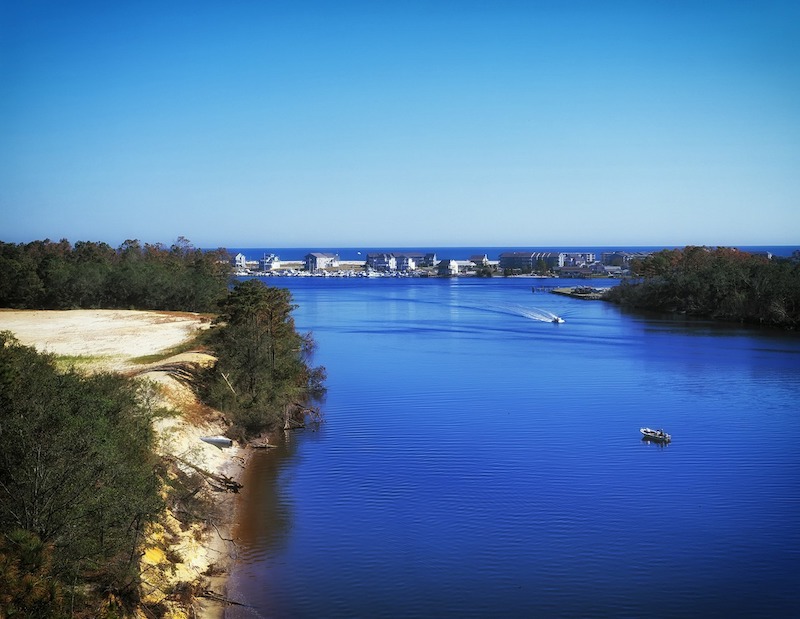A 2012 law that restricts taking into account the latest research in climate science could make North Carolina more vulnerable to Hurricane Florence.
The law banned policy makers from using recent climate science data to plan for sea level rise including things like elevation requirements on new buildings in flood-prone areas. The law was reportedly a response to a 2010 Coastal Resources Commission report that predicted sea levels on the Carolina coast would rise 39 inches by 2100.
The bill required the commission to write a new sea-level-rise report that limited its scope to the next 30 years. It was also required to take into account scientific studies refuting sea level rise, and to weigh the economic cost of limiting coastal development.
Scientists say the law is misguided, and will ultimately hurt the region’s ability to withstand damage from major storms. According to a recent article by a retired Duke University coastal geologist, the state should increase setback lines for coastal development, raise the height of buildings, move threatened buildings, prohibit rebuilding of storm-destroyed buildings, and begin a planned retreat from the rising water line.
Related Stories
| Jan 31, 2013
More severe wind storms should prompt nationwide reexamination of building codes, says insurance expert
The increased number and severity of storms with high winds nationally should prompt a reexamination of building codes in every community, says Mory Katz, vice president, Verisk Insurance Solutions Commercial Property, Jersey City, N.J.
| Jan 31, 2013
California Building Standards Commission adopts 2013 code update
The California Building Standards Commission adopted the new 2013 state standards code that includes new energy code provisions, accessibility standards, green building and water use modifications.
| Jan 25, 2013
D.C. authority wants to halt sewer tunnel projects while investigating green stormwater alternatives
The District of Columbia Water and Sewer Authority has proposed suspending a tunnel-building project.
| Jan 25, 2013
Energy modeling needed to overcome ‘plug load problem’ to meet high green standards
Plug loads illustrate how much end-users impact overall building energy use.
| Jan 25, 2013
ASHRAE publishes revised filtration standard, combines Standard 52.1 and 52.2
A newly revised filtration standard from ASHRAE combines two standards aimed at improving the technical accuracy of filter testing.
| Jan 25, 2013
AISC 206-13 standard for structural steel erectors available for review
AISC 206-13, a quality management system standard for structural steel erectors, is now available for public review.
| Jan 25, 2013
Builders Hardware Manufacturers Assn. revises five ANSI hardware standards
The Builders Hardware Manufacturers Association (BHMA) has released five revisions to ANSI/BHMA standards recently been approved by ANSI (American National Standards Institute).
| Jan 16, 2013
Pentagon plans huge spending cuts, including construction funds, amid budget deadlock fears
Defense Secretary Leon Panetta has ordered cuts to military spending as a precaution in case the White House and Congress fail to agree to avert $52 billion in cuts to the Pentagon budget this year.
| Jan 16, 2013
GSA's Green Proving Ground program pushes energy efficiency
The General Services Administration, which manages a portfolio of almost 10,000 buildings, is using the Green Proving Ground program to test technological advances in energy efficiency.
| Jan 16, 2013
Standards that include reflective roofs must take into account local climate
Roofs painted white can reflect heat and reduce warm-weather energy use, but in cooler regions like Minneapolis or Chicago, the issue of energy-efficiency is less straightforward.














